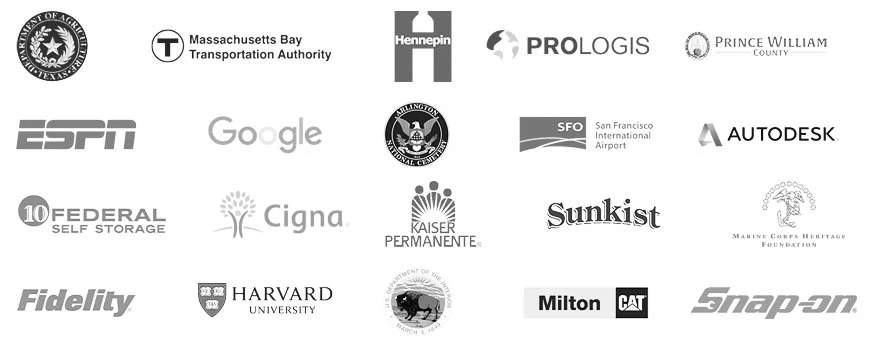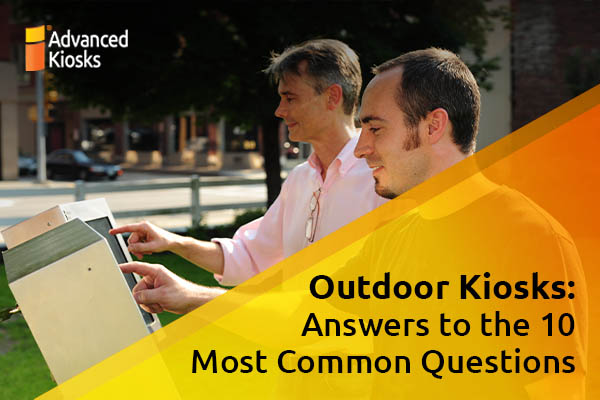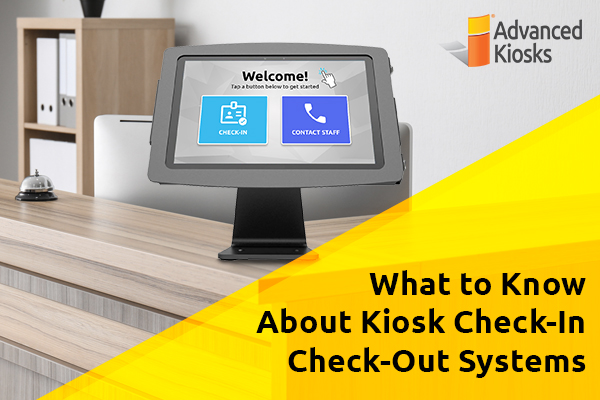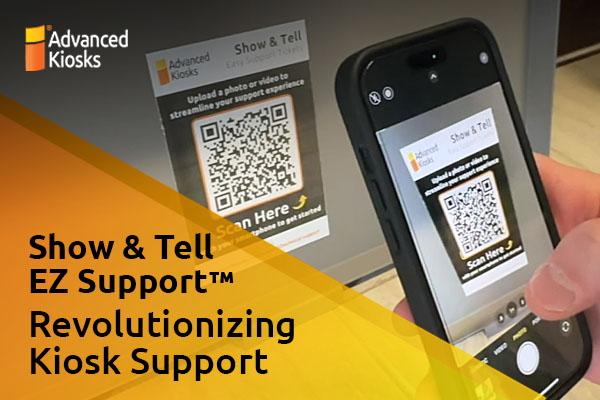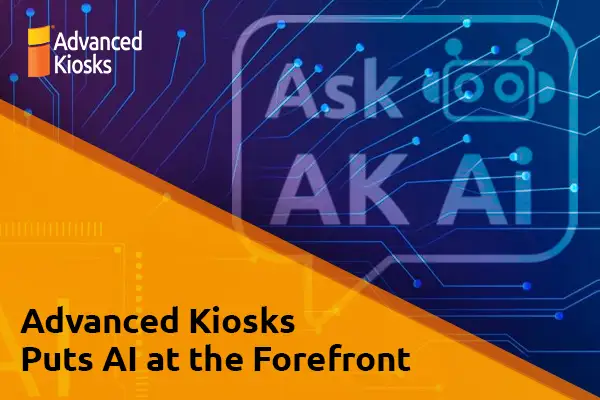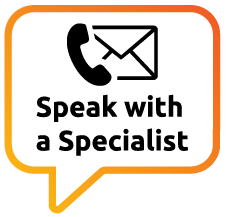Visitor Management for Courthouses
Visitor Management products to enhance visitor & staff engagement
Learn more about how our products can benefit your business. Fill out the contact form now to schedule a consultation with one of our experts.
 Visitor Management System
Visitor Management System
Give your visitors the access they need and your facility the security it requires. This visitor management solution provides a host of convenient features, including maps, schedules and visitor logs… SEE BELOW
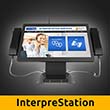 Interprestation
Interprestation
Translation for complex conversations by a live professional via video streaming. All use in on demand. Pay monthly only for the minutes used… SEE BELOW
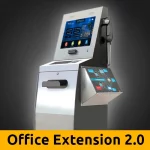 Zamok Kiosk Office Suite
Zamok Kiosk Office Suite
Boost staff productivity, reduce wait times and conserve resources with Zamok Kiosk Office Suite… SEE BELOW
VISITOR MANAGEMENT SYSTEM
You can pause the movie above to examine the interface sample.
This interactive kiosk can provide conveniences to your visitors such as: event schedules, news and announcements, RSS feeds, bulletin board, building Wi-Fi code, call directories, delivery notifications, visitor logs, building maps, translation of the interface, accessibility features and much more. The name tag feature generates a high quality badge to help prevent access to the school building by unauthorized persons.
- Fully self-service so your facility can remain locked, and your staff is freed from the task of managing visitors.
- The kiosk can welcome visitors, eliminating any doubt about what they should do.
- Visitors can choose a department or person to call or text by VOIP. No phone line needed.
- Visitors can print a nametag that includes their picture if required.
- Comes fully assembled with a 3-year warranty.
- Our detailed onboarding process ensures all software is set up and tested when the unit arrives.
- Weekly usage report is automatically delivered to your email.
- Accessibility functions for ADA compliance.
- Translation into any of 240 languages.
- SEE VISITOR MANAGEMENT SYSTEM PAGE FOR MORE DETAILS
- SPEAK WITH A REPRESENTATIVE
Find images, feature videos, FAQs, brochure, sample interfaces, pricing, recommended kiosk models and related blogs.
INTERPRESTATION
Live Interpretation Solutions
With schools struggling to cope with an increased number of students and/or parents with limited command of English, the InterpreStation offers 24/7 on-demand, live video interpretation, with no minimum usage, of 240 languages and American Sign Language on an interactive countertop kiosk with dual phones.
Users can have complex conversations through a human translator.
- Translation is simple and intuitive.
- Available 24 hours a day, seven days a week. Wait time for a translator to connect is typically less than a minute.
- All usage is on demand. No scheduling needed.
- Translation for more than 250 languages available. Low-use languages may not have video.
- American Sign Language and other sign languages available.
- Comes fully assembled with a 3-year warranty.
- Weekly usage report is automatically delivered to your email.
- Hardware is ADA compliant.
- Onboarding team brands the interface and sets up all software.
- Training is included with onboarding.
- Durable handset allows for privacy and is suitable for the hearing impaired.
- SEE INTERPRESTATION PAGE FOR MORE DETAILS
- SPEAK WITH A REPRESENTATIVE
Play the video above to view a demonstration of the Interprestation.
Find images, feature videos, FAQs, brochure, sample interfaces, pricing, recommended kiosk models and related blogs.
OFFICE EXTENSION 2.0
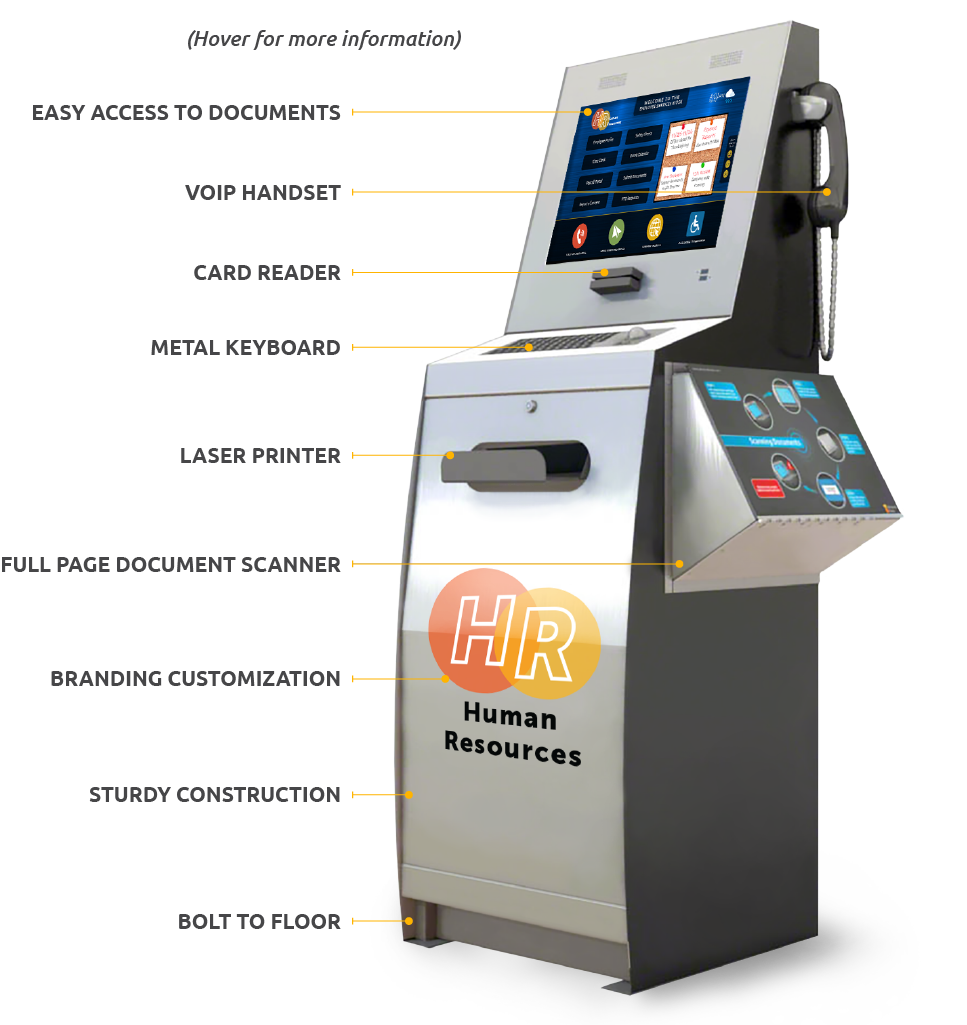
Customize Your Solution
19" display screen allows employees instant access to MSDS, quality documents, pay stubs and time clock/payroll info, vacation and PTO, HR benefits access, orientation and training, events, notices, scheduling and more.
Kiosk functionality can be configured and administered right from your desktop.
Call for Assistance
Configure your VOIP handset to dial predetermined parties at the touch of a button. No phone system required.
Card Reader
Scan credit cards, barcodes, IDs or drivers' licenses.
Keyboard & Touchpad
A durable and backlit keyboard to allow your deskless employees to communicate via email, surveys and form submissions.
Internal Laser Printer
Allow deskless employees the ability to print out full size documents.
ADA Compliant Flatbed Scanner
Scan letters, passports, licenses and other full page documents. Email scanned document to specified parties or print document directly at the kiosk with the touch of a button.
Custom Graphics
Add your logo or specific messaging to the kiosk.
Steel Enclosure
Durable steel enclosure coupled with our 3 year warranty. Made in America.
Bolt to Floor
Bolt to the floor or wall for extra security.
Zamok Kiosk Office Suite is the perfect solution for courthouse needs.
Now we know what you might be thinking – how is Zamok Kiosk Office Suite different from kiosk hardware? Well, kiosk hardware is just that – hardware—one piece of a larger puzzle.
To properly function and fulfill customer and employee needs, a complete kiosk solution partners with software. Together, kiosk and software make a difference in your business’s day-to-day operations, effectively serving as an extension of our office, and provide your employees the best possible experience.
Find images, feature videos, FAQs, brochure, sample interfaces, pricing, recommended kiosk models and related blogs.
A few of our customers…
